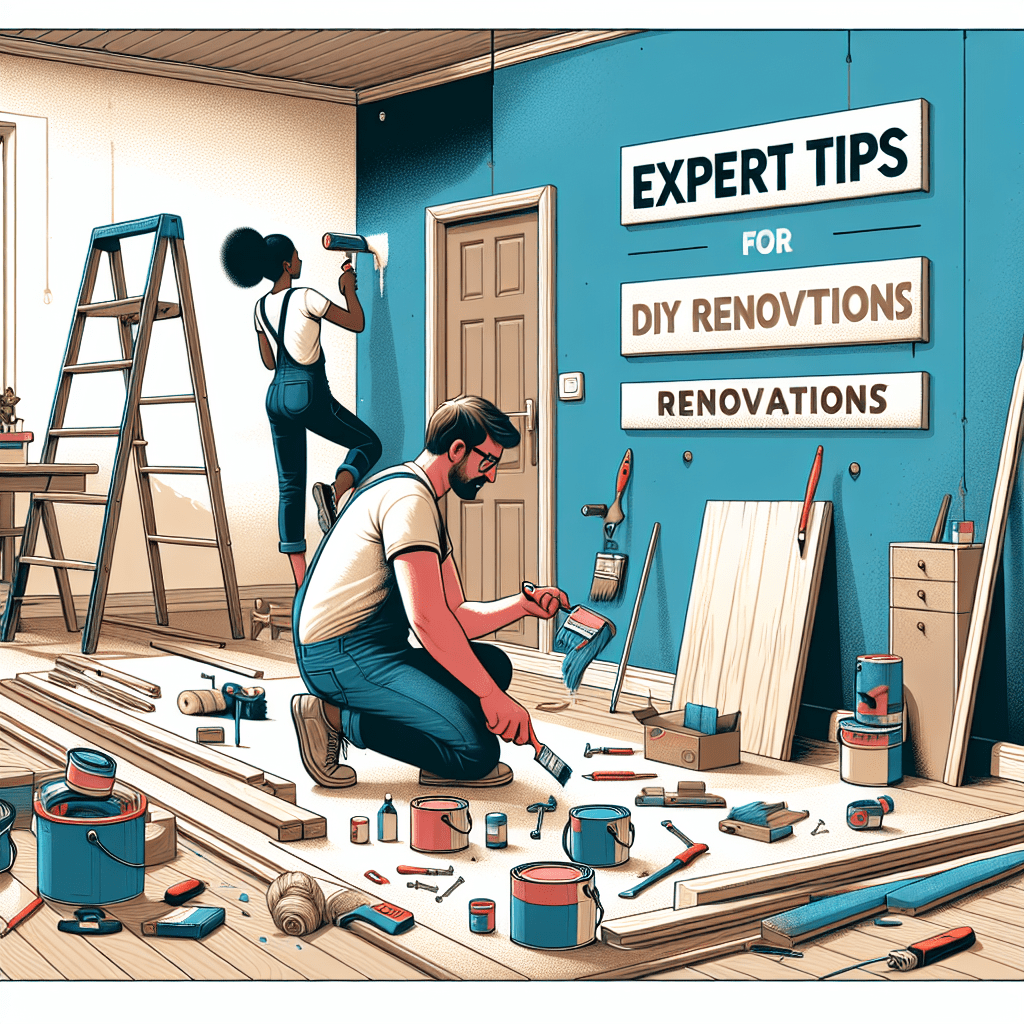Expert Tips for DIY Home Renovations
Embarking on a do-it-yourself home renovation project can be a rewarding and cost-effective way to update your living space. With the right planning and preparation, you can achieve professional-looking results without breaking the bank. To help you make the most of your DIY renovation, here are some expert tips to guide you through the process.
1. Set a Realistic Budget
Before you start tearing down walls or ripping up floors, it’s important to establish a budget for your renovation project. Make a list of all the materials and tools you’ll need, as well as any professional services you may require. Factor in any unexpected costs that may arise during the renovation process to ensure your budget is realistic and manageable.
2. Plan Your Project Carefully
Proper planning is essential for a successful DIY renovation. Create a detailed timeline outlining the steps you’ll need to take to complete the project, including ordering materials, scheduling subcontractors, and finalizing any design decisions. Consider any potential challenges or obstacles that may arise and have a plan in place to address them.
3. Focus on Quality Materials
When it comes to DIY home renovations, investing in quality materials can make a big difference in the final outcome. Choose durable, long-lasting materials that will stand the test of time and enhance the overall look and feel of your home. While it may be tempting to cut corners with cheaper options, investing in quality materials will save you time and money in the long run.
4. Use the Right Tools
Having the right tools for the job is essential for a successful DIY renovation. Make sure you have all the necessary tools on hand before you start your project, including power tools, hand tools, and safety equipment. If you don’t already own the tools you need, consider renting or borrowing them to save on costs.
5. Prioritize Safety
Safety should always be a top priority when undertaking a DIY renovation project. Make sure you follow all safety guidelines and wear protective gear, such as goggles, gloves, and a dust mask, when working with tools or materials that could pose a risk. If you’re unsure about how to safely complete a task, seek advice from a professional or do some research before proceeding.
6. Consider Hiring Professionals for Certain Tasks
While DIY renovations can save you money, there are some tasks that are best left to the professionals. If you’re not experienced in plumbing, electrical work, or structural changes, it’s wise to hire a licensed contractor or tradesperson to handle these aspects of your renovation. This will help ensure the work is done safely and up to code.
7. Work Room by Room
Instead of trying to tackle your entire home renovation at once, consider working on one room at a time. This will help you stay organized and focused on each individual project, making it easier to track your progress and manage your budget. Start with the room that will have the biggest impact on your home and work your way through the rest of the house.
8. Don’t Forget the Finishing Touches
Once the major construction work is complete, don’t forget to add the finishing touches that will bring your renovation project to life. This includes painting walls, installing new fixtures, and adding decorative elements such as artwork, cushions, and rugs. These small details can make a big difference in the overall look and feel of your home.
Conclusion
With these expert tips in mind, you can confidently tackle your next DIY home renovation project and achieve professional-looking results without breaking the bank. By setting a realistic budget, planning carefully, using quality materials, and prioritizing safety, you can transform your living space into a beautiful and functional home that you’ll be proud to show off to family and friends.
FAQs
Q: How can I save money on my DIY home renovation?
A: To save money on your DIY renovation, consider sourcing materials from discount stores, buying used or gently used items, and reusing materials from your existing space whenever possible.
Q: How can I ensure my DIY renovation is up to code?
A: To ensure your DIY renovation meets local building codes, consult with a professional contractor or tradesperson before starting your project. They can provide guidance on what permits or inspections may be required.
Q: What are some common mistakes to avoid in DIY home renovations?
A: Common mistakes to avoid in DIY renovations include underestimating costs, skipping proper planning, ignoring safety precautions, and attempting complex tasks without the necessary skills or experience.
TIPS: Enjoy the Process
Remember to enjoy the process of renovating your home. While DIY Projects can be challenging at times, they can also be incredibly rewarding. Take pride in your hard work and creativity, and don’t be afraid to ask for help or advice when needed. Happy renovating!
#Expert #Tips #DIY #Home #Renovations
